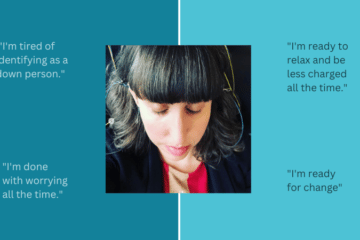
Talking about sex or our sexuality can be a hard, awkward and sensitive subject. Ironically We are bombarded by images of sex in our culture (on tv, online, and in magazines). Most of us feel ill-equipped to explore the topic. The topic of sex is shrouded in shame, embarrassment, and fear. So of course It is hard to talk about. Psychotherapist, Alison Pepper LCSW will explore the relationship between shame and sex and offer tips on how to talk about sex.
LET’S THINK ABOUT SEX…
If we are going to talk about sex it is important to acknowledge shame. So many of us, throughout our lifetime, have been shamed for being curious about sex and our bodies. Sometimes as children by our parents or the adults in our life, sometimes as teens from peers, and as we continue into adulthood from friends, family, and culture at large.
Beyond the shame that many of us have experienced around the topic of sex and sexuality, it is important to note that that one in four girls and one in six boys will be sexually abused before they turn 18 years old. Sexual harm is present in our families, schools, places of worship, work, and society at large. Despite the widespread prevalence of sexual abuse, we are not talking about it regularly. The National Sexual Violence Resource Center is one of many agencies working to end the stigma around sexual assault, abuse, and harm. They offer a lot of statics and educational material on this topic and can be seen accessed at their website for more information. The prevalence of sexual trauma in our society as well as the denial and repression of that topic greatly impacts people’s comfort with the topic of sex.
For many reasons and for a long time sex has been seen as dirty. Because of this, there is an absence of sex-positive-sex-ed in America. Many schools offer no sex ed and many offer an absences only, disease fear-based model. On the flip side, we are bombarded by images of sex and violence in our media. This can leave children, teens, and adults feeling confused and overwhelmed. To read more about this topic check out this short article.
So how do we talk about sex? What tools do we need and what examples are out there? See below 3 simple tips for talking about sex with your partner, teen child, or a friend.
3 Tips for Talking About Sex
1. Get (re)educated: What we know about sex, how we learned, and from whom matters. Just like anything in life learning is a process. Mastery of any subject or skill usually takes a lifetime. Today there are no many ways to get educated or re-educated and that might include podcasts, books, or online talks/articles/blogs. Our re-education around sex could include talking to friends, new lovers, or a therapist. Here are a few simple resources and great places I would recommend starting: Inspiration and educational TED Talks like this one given by Debby Herbanick
https://youtu.be/CE3tL9MMk3U
For great podcasts and a monthly town hall gathering in NYC check out Touchpoint.
There are so many great books out there but I highly recommend The Ethical Slut: A Practical Guide to Polyamory, Open Relationships, and Other Freedoms In Sex and Love by Janet W. Hardy and Dossie Easton and Matting in Captivity by Esther Perel.
2. Start where you are/feel your feelings: Whenever we start something new or work at practising anything it’s important to start where we are. It can be easy to compare ourselves to others or to want to be in the future, or “be better”. Remember it’s okay to not know, to not have all the answers, to be confused, excited, or anxious. Whatever is coming up, it is workable. Meditation practice is a powerful tool for working with your thoughts and feelings. Mindfulness meditation can help you at the moment when you are sitting down to read something you have never read about sex, it can help you at the moment when you are about to say something you have never said about sex out loud and it can of course help you at the moment when you are about to do something you have never done sexually. Here is a basic reminder to help bring you back into the moment with mindfulness meditation: take a deep breath in and out, feel your feet on the ground, take another deep breath in and out.
3. Journaling and exploring your fantasies: You don’t have to journal only about your fantasies (sexual and otherwise) but journaling can help you get out of your head, help you get new ideas, identify where you might be stuck, and what direction you might want to move towards. Fantasizing or journaling about your fantasies can happen simultaneously or one might inspire the other depending on how you look at it. The key is that you are opening up and possibly pushing yourself into new uncharted territory. You do this work alone first, in a journal or your imagination. Then you have the option of sharing it with a lover or partner.
It’s your journey so you get to decide
Just like sex, talking about sex is completely up to you. How you want to do it or prepare for it is your choice and your journey. Chances are if you are reading this blog you are curious and open to the idea of looking at your sexuality and exploring how talking about sex can empower you and enhance your experience in bed and otherwise. Be brave, ask lots of questions and speak your mind!


